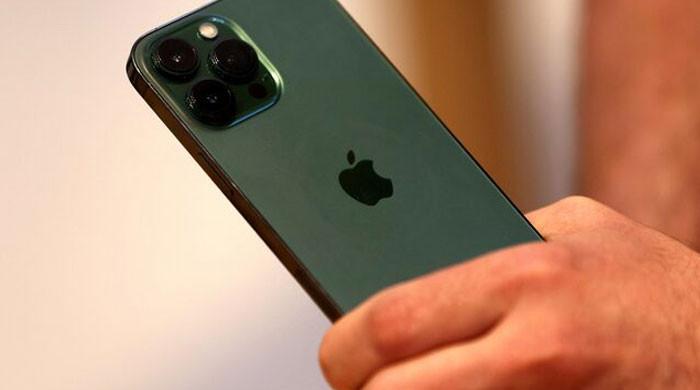New York/Washington: President Donald Trump wants Apple to build iPhones in the United States. But experts say that doing it could take years and make the phones much more expensive – as much as $ 3,500 each.
It is almost three times the current price.
The big question now is: Will American consumers be willing to pay the high price just to get a phone made at home?
Trump’s bid to bring the production of iPhone to the United States face many legal and financial challenges, experts said on Friday- of which they are at least the deployment of ‘small screws’ to be automated.
On Friday, Trump threatened to introduce a 25% duty on Apple for any iPhones sold but not made, in the United States, as part of his administration’s goal of redirecting jobs. He told journalists later on Friday that the 25% duty would also apply to Samsung and other smartphone manufacturers. He expects tariffs to take effect at the end of June.
“Otherwise, it wouldn’t be fair” if it didn’t apply to all imported smartphones, Trump said. “I had an understanding with (Apple CEO) Tim (Cook) that he wouldn’t do this. He said he is going to India to build plants. I said it’s ok to go to India, but you won’t sell in here without duty.”
Trade Secretary Howard Lutnick told CBS Last month, working with “millions and millions of people screwing into small, small screws to manufacture iPhones” would come to the United States and be automated, creating jobs for skilled trade workers such as mechanics and electricians.
But he later told CNBC This chef informed him to do so requires technology not yet available.
“He said I have to have the robotic arms, not, do it on a scale and a precision that I could bring that hit. And the day I see it is available, this is coming,” Lutnick said.
The fastest way for Trump administration to push Apple through tariffs would be to use the same legal mechanism behind punishing tariffs on a broad weakness of imports, trade lawyers and professors said.
The law, known as the International Emergency Economic Powers Act, allows the president to take financial steps after declaring an emergency that poses an unusual and extraordinary threat to the United States.
“There is no clear legal authority that allows business-specific tariffs, but the Trump administration can try to shoe horns under its emergency power authorities,” said Sally Stewart Liang, a partner in Akin Gump in Washington.
Other funds for collecting corporate -specific customs rates are dependent on long investigations, Liang said.
But tariff rates on only Apple “would provide a competitive advantage for other important phones that undermine Trump’s goal of bringing production to the United States,” Liang said.
Experts said Trump has seen Ieeepa as a flexible and powerful financial tool because it is not clear that courts have the power to review the president’s response to a declared emergency.
“In the administration’s view, as long as he adopts the ritual of declaring an emergency and pronouncing the unusual or extraordinary, there is nothing a court can do,” said Tim Meyer, an international law professor at Duke University.
In one case constructed by 12 states that challenge Trump’s “Liberation Day” tariffs in the Manhattan -based Court of International Trade, the Court is considering this issue and whether Ieeepa authorizes duty at all.
If the Trump administration wins this case, “the president will have no trouble coming up with an emergency as a reason for imposing tariffs to the Apple iPhone import,” Meyer said.
Trump could even only include iPhones under emergency deficits, which already formed the basis of customs duties declared earlier, Meyer said.
But moving production to the United States could take up to a decade and could result in iPhones costing $ 3,500 each, Dan Ives, an analyst at Wedbush, said in a research note. Apple’s top-of-the-line iPhone is currently repaid for about $ 1,200.
“We believe that the concept of apple -producing iPhones in the United States is an adventure that is not possible,” said Ives.
Even without getting that far, a duty on iPhones would increase consumer costs by complicating Apple’s supply chain and financing, said Brett House, an economics professor in Columbia.
“None of this is positive for American consumers,” he said.



